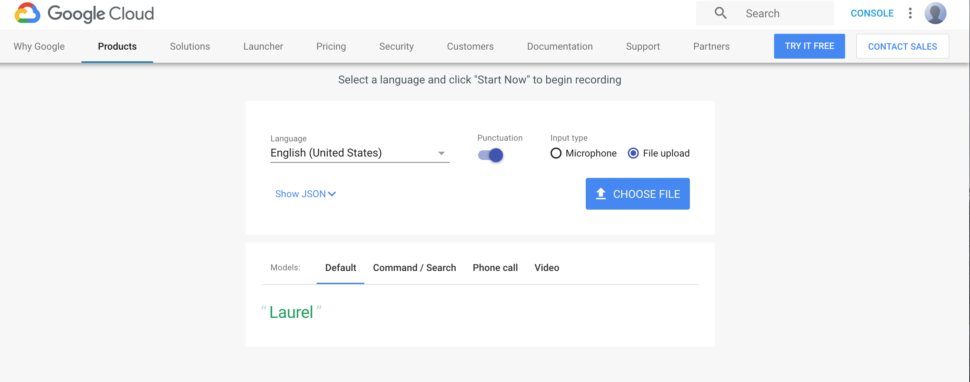
Note: This feature is only supported for Voice Command and Voice Search use cases and performance may vary for other use cases (e.g., phone call transcription). The recognition result will include the language tag of the language detected in the audio. If alternative languages are listed, recognition result will contain recognition in the most likely language detected including the main language_code. See () for a list of the currently supported language codes. "alternativeLanguageCodes": () language tags, listing possible alternative languages of the supplied audio.

"value": "A String", # The phrase itself. We recommend using a binary search approach to finding the optimal value for your use case as well as adding phrases both with and without boost to your requests.

Though `boost` can accept a wide range of positive values, most use cases are best served with values between 0 and 20. The higher the boost, the higher the chance of false positive recognition as well. Positive value will increase the probability that a specific phrase will be recognized over other similar sounding phrases. Overrides the boost set at the phrase set level. To specify a region, use a () with matching `us` or `eu` location value. If you are calling the `` endpoint, use the `global` location. Speech-to-Text supports three locations: `global`, `us` (US North America), and `eu` (Europe). For more information on asynchronous speech recognition, see the (). Returns either an `Operation.error` or an `Operation.response` which contains a `LongRunningRecognizeResponse` message. Longrunningrecognize(body=None, x_xgafv=None) Performs asynchronous speech recognition: receive results via the interface.


 0 kommentar(er)
0 kommentar(er)
